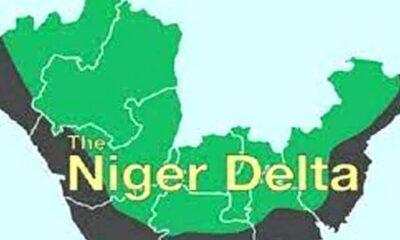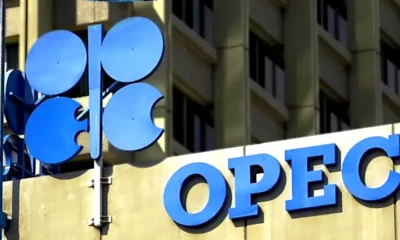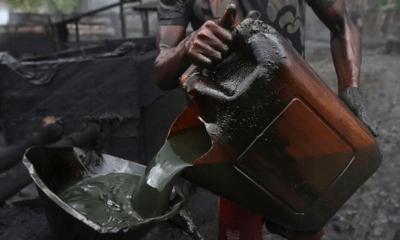Business
How Theft Crashed Nigeria’s Oil Production In August
Published
2 years agoon
By
Editor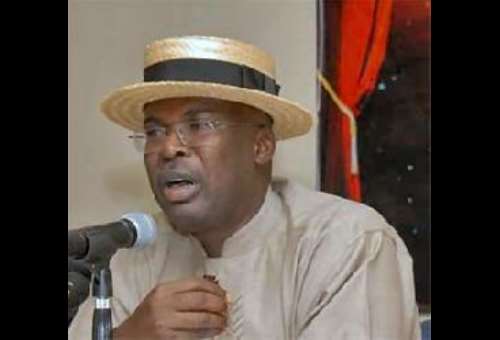
Nigeria’s crude oil production slumped below one million barrels per day in August 2022, the lowest in at least 30 months, Okechukwu Nnodim reports
Crude oil production in Nigeria dropped again in August 2022, crashing below one million barrels per day to 972,394 bpd, the lowest recorded in years.
The latest figures obtained in Abuja on Thursday from the Nigerian Upstream Petroleum Regulatory Commission indicated that the country’s oil production dropped from 1,083,899 bpd in July to 972,394 bpd in August.
Hence, Nigeria lost about 111,505 barrels of crude oil daily in August, as it was also gathered that the Nigerian National Petroleum Company Limited went to the Federal High Court to canvass special tribunal for the speedy trial of crude oil thieves and pipeline vandals.
Documents obtained by our correspondent showed that while the total crude oil production in July 2022 was 33,600,878 barrels, this slumped to 30,144,212 barrels in August, indicating a loss of 3,456,666 barrels in one month.
Data compiled by countryeconomy.com, an international analytical firm, showed that the average price of Brent, the global benchmark for crude, was $100.5/barrel.
READ ALSO: Stolen Crude Oil Found In Churches, Mosques – NNPC
Therefore, by losing 3,456,666 barrels in August, Nigeria lost $364.68m or N155.87bn (at Thursday’s official exchange rate of N427.43/$) in the month under review.
An analysis of the 2020, 2021 and 2022 crude oil and condensate production reports for Nigeria showed that the 972,394 bpd produced in August 2022 was the lowest ever in these years.
All the figures for oil production in 2020 and 2021 through January to July 2022 were above one million barrels per day, but this dropped below the 1mbpd mark in August 2022.
From January, February, March and April 2022, for instance, the country’s crude oil production (without condensates) were 1.39mbpd, 1.26mbpd, 1.24mbpd and 1.22mbpd respectively.
In May, June and July 2022, the figures were 1.02mbpd, 1.16mbpd and 1.08mbpd respectively. But this dropped below 1mbpd in August to 0.97mbpd.
The reason being given daily for the slump in Nigeria’s oil production is oil theft but the stealing of crude has refused to abate.
This made the Petroleum and Natural Gas Senior Staff Association of Nigeria to threaten that it would stop producing oil across the country if the Federal Government failed to nip the menace in the bud.
PENGASSAN commenced rallies in various states on Thursday to protest the continued stealing of crude, as it blamed soldiers and other security agents for conniving with thieves to perpetuate the crime.
The association’s President, Festus Osifo, said the majority of Nigeria’s oil exploration activities on land were currently shut due to massive oil theft in the Niger Delta.
“We’ve had meetings with the security agencies and captains of industry on what could be done to end oil theft, but these meetings seem to be yielding no result,” he stated.
Osifo added, “We now think that engaging behind the four walls of the office is not enough, because our engagements with those in government have not yielded any meaningful result.”
He observed that crude oil price had tended higher than $100/barrel, adding that many oil-producing countries were taking advantage of this, but the reverse was the case with Nigeria as the country had remained broke.
The PENGASSAN president said the Federal Government borrowed over N6tn to finance the country’s 2022 budget, whereas “if we (Nigeria) are able to produce up to 1.9mbpd, we don’t have any need to go borrowing that much.”
Osifo stated that the massive oil theft had affected other sectors of the economy, stressing that manufacturers could hardly borrow money from deposit money banks because the government was currently crowding them out.
READ ALSO: Again, OPEC Increases Nigeria’s Crude Oil Production Quota To 1.8mbpd
“Banks now lend money to the government at the expense of private businesses and manufacturers, because the government is the one that can pay. It can print money to settle the debts at the expense of manufacturers,” he stated.
He urged the Federal Government to wake up and address the menace of oil theft in order to avert a total grounding of crude oil production by oil workers nationwide.
In a bid to tackle the concerns, the NNPC tweeted on Thursday that its Group Chief Executive Officer, Mele Kyari, met with the Chief Judge of the Federal High Court of Nigeria, Justice John Tosho.
It said the meeting was to seek the support of the judiciary for a special court on oil theft and pipeline vandalism.
The company said, “Earlier today, the GCEO @nnpclimited, Mele Kyari, paid a courtesy call on the Chief Judge of the Federal High Court of Nigeria, Justice John Tosho.
“During the visit, the GCEO sought the High Court’s support towards the creation of a special court/tribunal to ensure speedy trial of crude oil thieves and pipeline vandals.
“The GCEO, who described these actions as a serious threat to Nigeria’s oil production, revenue generation and by extension energy security, observed that a special court to execute such cases will deter would-be criminals and assure investors of value for their investments.”
A document released recently by the NUPRC revealed that crude oil theft had severely limited the country’s earnings from oil sales.
In the document, the commission’s Chief Executive, Gbenga Komolafe, however, stated that efforts were being intensified to curb the menace.
READ ALSO: Nigeria Now Produces 1.3million Barrels Of Crude Oil Per Day – Sylva
He said, “In line with Mr President’s directive, the commission has evolved additional initiatives further to collaborate with oil and gas operating companies (including NNPC) and the top echelon of Nigerian security forces to put an end to the menace of crude oil theft in the interest of the nation.”
Komolafe said the NUPRC had commenced the validation of crude oil volumes and assessment of upstream assets integrity audit.
“The commission has commenced a full-scale audit of crude oil theft and assessment of upstream assets integrity audit to establish actual crude oil theft figures in the upstream petroleum industry,” he stated.
Komolafe added, “This is in view of recent controversial figures on theft volumes thrown up by some industry operators, which impact negatively on federation revenue. This is very important as the nation derives its royalty from net crude oil receipts.”
The NUPRC boss also stated that the commission would be implementing an advanced cargo declaration regime.
He said, “The commission obtained necessary approvals to implement advance cargo declaration regime in upstream petroleum operations to curtail the export of stolen crude oil.
“This is by ensuring that crude oil and gas cargoes exported from Nigeria will have a unique identifier that confirms all documentation as regards the exported consignment.
“This implies that any cargo that does not have the unique identifier was not legitimately exported from the country.”
On his part, a former President of the Association of National Accountants of Nigeria, Dr Sam Nzekwe, stated that the government must end oil theft to save Nigeria from such humongous financial losses.
“Nigeria needs all the revenue it can get now, so nipping oil theft in the bud is paramount and must be addressed by the Federal Government as fast as possible,” he stated.
According to The PUNCH, in March this year, the total value of Nigeria’s crude oil stolen between January 2021 and February 2022 was about $3.27bn (representing N1.361tn at the official exchange rate of N416.25 to the dollar).
International oil companies and their counterparts in Nigeria said the massive oil theft across the country currently posed a threat to not just their existence but to the Nigerian economy.
The Federal Government, through its NUPRC, had disclosed the oil theft value during a meeting with the Oil Producers Trade Section, as well as the Independent Petroleum Producers Group in Abuja.
OPTS is a body comprising IOCs operating in Nigeria, while IPPG is an association of indigenous exploration and production companies.
A presentation by the NUPRC at the event indicated that oil theft rose sharply between 2021 and 2022, as an official of the IPPG stated that about 91 per cent of total crude produced at the Bonny Terminal was stolen in January 2022.
In its report on the trend in oil theft, the NUPRC had said, “Total value loss for the period January 2021 to February 2022 is about $3.27bn.
“Average monthly value loss for the period is about $233.99m. Average daily value loss for the period is about $7.72m.”
It added, “Losses are mainly from Bonny Terminal Network, Forcados Terminal Network (and) Brass Terminal Network.”
The commission had outlined factors that aided crude oil theft to include: inadequate security, poor community engagement, economic challenges, poor surveillance, stakeholder compromises and exposed facilities.
The OPTS Chairman, Rick Kennedy, who doubles as Managing Director, Chevron Nigeria Limited, and represented IOCs at the meeting, had described the massive oil theft across the country as an organised criminal activity.
READ ALSO: How Govt Officials Facilitated $1.2bn Crude Oil, Gas Theft – Source
Kennedy, who was represented by the Managing Director, ExxonMobil Nigeria, Richard Laing, had said, “When I say it is organised criminality, the sophistication of the engineering involved points towards a high degree of sophistication and technology, as well as the distribution.
“I think we’ve just got to be honest and accept that this is not theft but more than that.”
The IOCs called for a quick solution to the menace, stressing that the development posed a serious threat to their existence.
“It is important that the Federal Government, industry, and a whole bunch of other stakeholders find a solution and find it quickly. That will be my strong advice,” Laing had stated.
PUNCH.
You may like


Why Nigeria’s Oil Belongs To The North – Ex-presidential Aide


Crude Prices Drop After Angola Quits OPEC


FG Cracks Down On Producers Over Domestic Crude Oil Supply To Refineries


Bayelsa Poll: INEC Excludes Sylva’s Name From Candidates List, APC Kicks


Nigeria Still Losing 400,000 Barrels Of Crude Oil Daily – NSA


Oil Theft: NAF Airstrikes Destroy Boats, Tanks With Stolen Crude Oil In Rivers

The Central Bank of Nigeria (CBN) started fresh and direct sales of US dollars at N1,021 per dollar to Bureau De Change operators.
Nigeria’s apex bank disclosed this in a circular signed by its Director of Trade and Exchange Department Hassan Mahmud.
“We write to inform you of the sale of $10,000 by the Central Bank of Nigeria (CBN) to BDCs at the rate of N1,021/$1. The BDCs are in turn to sell to eligible end users at a spread of NOT MORE THAN 1.5 percent above the purchase price,” the circular posted on its website read.
READ ALSO: Tinubu Unveils African Counter-Terrorism Summit
“ALL eligible BDCs are therefore directed to commence payment of the Naira deposit to the underlisted CBN Naira Deposit Account Numbers from today, Monday, April 22, 2024, and submit confirmation of payment, with other necessary documentations, for disbursement of FX at the respective CBN Branches.”
CBN’s move is coming as the naira is recording a slight depreciation against the dollar after weeks of gains.
In late March, the bank also sold $10,000 to each of the eligible Bureau De Change (BDC) operators in the country at the rate of N1,251/$1.
READ ALSO: Mixed Reactions Trail Video Of Couple’s Customised N200 Notes
Like in the most recent sales, it warned BDCs against breaching terms of the dollar sales, vowing to sanction defaulters “including outright suspension from further participation in the sale”.
The fortunes of the naira have fallen sharply since President Bola Tinubu took over in May. Inflation figures have reached new highs and the cost of living hitting the rooftops.
Nigeria’s currency slid to about N1,900/$ some months ago at the parallel market. But in recent weeks, it has gained against the dollar.
The Nigerian authorities have also doubled down on their crackdown against cryptocurrency platform Binance and illegal BDCs.
On March 1, the CBN revoked the licences of 4,173 BDCs over compliance failures.
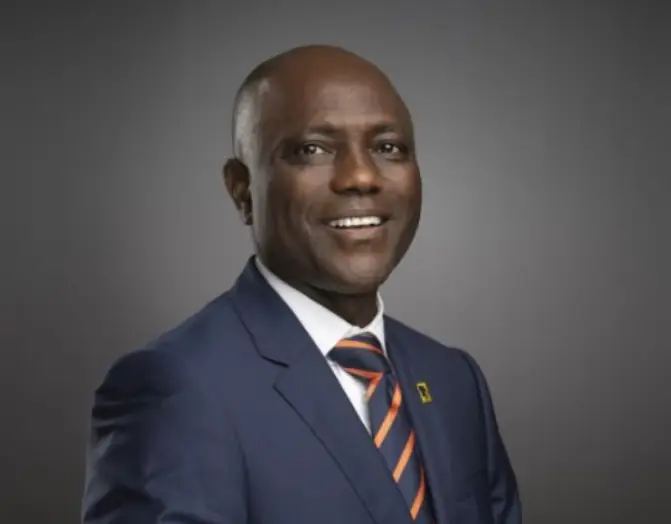
Olusegun Alebiosu has been appointed as the Acting Managing Director/Chief Executive Officer of First Bank of Nigeria Limited (FirstBank Group), effective April 2024.
Alebiosu steps into this pivotal role from his previous position as the Executive Director, Chief Risk Officer, and Executive Compliance Officer, a position he held since January 2022.
Alebiosu brings to the helm of FirstBank over 28 years of extensive experience in the banking and financial services industry. His expertise spans various domains including credit risk management, financial planning and control, corporate and commercial banking, agriculture financing, oil and gas, transportation, and project financing.
READ ALSO: JUST IN: Access Holdings Names New Acting CEO
Having embarked on his professional journey in 1991 with Oceanic Bank Plc. (now EcoBank Plc.), Alebiosu has held several notable positions in esteemed financial institutions.
Prior to joining FirstBank in 2016, he served as Chief Risk Officer at Coronation Merchant Bank Limited, Chief Credit Risk Officer at the African Development Bank Group, and Group Head of Credit Policy & Deputy Chief Credit Risk Officer at United Bank for Africa Plc.
Alebiosu’s academic credentials further enrich his professional profile. He is an alumnus of the Harvard School of Government and holds a Bachelor’s degree in Industrial Relations and Personnel Management. Additionally, he obtained a Master’s degree in International Law and Diplomacy from the University of Lagos, as well as a Master’s degree in Development Studies from the London School of Economics and Political Science.
READ ALSO: Meet Newly Appointed Union Bank CEO
A distinguished member of various professional bodies, including the Institute of Chartered Accountants (FCA), Nigeria Institute of Management (ANIM), and Chartered Institute of Bankers of Nigeria (CIBN), Alebiosu is renowned for his commitment to excellence and ethical practices in the banking sector.
Beyond his professional endeavors, Alebiosu is known for his passion for golf and adventure. He is happily married and a proud parent.
With Alebiosu’s appointment, FirstBank of Nigeria Limited anticipates continued growth and innovation under his leadership, reinforcing its position as a leading financial institution in Nigeria and beyond.
Business
CBN Gives New Directive On Lending In Real Estate
Published
7 days agoon
April 17, 2024By
Editor
The Central Bank of Nigeria, CBN, has released a new regulatory directive to enhance lending to the real sector of the Nigerian economy.
The directive, issued on April 17, 2024, with reference number BSD/DIR/PUB/LAB/017/005 and signed by the Acting Director of Banking Supervision, Adetona Adedeji, signifies a notable shift in the bank’s policy towards a more contractionary approach.
In line with the new measures, the CBN has reduced the loan-to-deposit ratio by 15 percentage points, down to 50 per cent.
This move aligns with the CBN’s current monetary tightening policies and reflects the increase in the Cash Reserve ratio rate for banks.
READ ALSO: JUST IN: CBN Gov Sacks Eight Directors, 32 Others
The LDR is a metric used to evaluate a bank’s liquidity by comparing its total loans to its total deposits over the same period, expressed as a percentage.
An excessively high ratio may indicate insufficient liquidity to meet unexpected fund requirements.
All Deposit Money Banks are now mandated to adhere to this revised LDR.
The CBN has stated that average daily figures will be utilised to gauge compliance with this directive.
Furthermore, while DMBs are encouraged to maintain robust risk management practices in their lending activities, the CBN has committed to continuous monitoring of adherence and will adjust the LDR as necessary based on market developments.
READ ALSO: JUST IN: CBN Increases Interest Rate To 24.75%
Adedeji has called on all banks to acknowledge these modifications and adjust their operations accordingly. He emphasised that this regulatory adjustment is anticipated to significantly influence the banking sector and the wider Nigerian economy.
The circular read in part, “Following a shift in the Bank’s policy stance towards a more contractionary approach, it is crucial to revise the loan-to-deposit ratio policy to conform with the CBN’s ongoing monetary tightening.
“Consequently, the CBN has decided to decrease the LDR by 15 percentage points to 50 per cent, proportionate to the rise in the CRR rate for banks.
“All DMBs must maintain this level, and it is advised that average daily figures will still be applied for compliance assessment.
“While DMBs are urged to sustain strong risk management practices concerning their lending operations, the CBN will persist in monitoring compliance, reviewing market developments, and making necessary adjustments to the LDR. Please be guided accordingly.”

PSR: PIND Foundation Seeks Feedback from Niger Delta Residents, Stakeholders

JUST IN: Wike’s Loyalist Rejects Fubara’s Redeployment, Resigns As Rivers Commissioner
BREAKING: FG Grounds Dana Air Operations After Lagos Airport Incident
Trending

 Entertainment2 days ago
Entertainment2 days agoBridesmaids’ Dance At Wedding Causes Stir On Social Media [VIDEO/PHOTOS]

 Politics3 days ago
Politics3 days agoEdo Guber: Akoko-Edo PDP Leaders Meet In Igara, Describe Ighodalo, Ogie As ‘Perfect Match’

 Metro2 days ago
Metro2 days agoVIDEO: ‘UNN Lecturer’ Caught Pants Down With Married Student

 News4 days ago
News4 days agoFoundation Advocates Empowerment Of Women, Youth In Nigeria

 News3 days ago
News3 days agoOutrage As Chinese Supermarket In Abuja Denies Nigerians Entry

 News5 days ago
News5 days agoForgive Me, Purported Hausa Traditional Ruler Begs Benin Monarch

 News4 days ago
News4 days agoJapa: Types Of US Visa Available To Nigerians, Other Foreigners

 News5 days ago
News5 days agoJUST IN: Tinubu Appoints SEC Chairman, Board Members

 News4 days ago
News4 days agoWhy Police Detained Yahaya Bello’s ADC, Security Details Revelead

 News4 days ago
News4 days agoDelta Bloodbath: Oborevwori Assures Okuama indegenes Of Safe Return As He Visits Troubled Community
